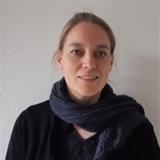The Technological Future of Food & Farming
The recent farmers’ protests make you think about what the future of our food production will look like. Should we trust so-called innovations to solve most problems or is technology not the holy grail that we want it to be? (English / SG-Certificate*)
Time: 16:00-17:45 hrs.
Admission is free, registration required (limited number of seats)
Register to attend the event or Join this event online via Zoom
Additional information for joining via Zoom
- Meeting ID: 976 4411 3936
- Passcode: 4995719026
No longer Science Fiction
Potential food scarcity, climate change, and recent Dutch farmers’ protests all call for starting to think more critically about how we want to produce our food. Technological innovations are often mentioned as potential solutions to most of our problems. Examples of ‘smart farming’ include GPS steered combines, field-scanning drones that advise where more fertilizer is needed, genetic modification and manipulation of crops to make them more disease- and drought-resistant, the use of big data and AI to optimize farming, 3D food printing and creating lab-grown meat.
Technology at the Dinner Table
While many of these technologies are already being used or nearing the end of their experimental phase, what are the exact opportunities and risks of these new agriculture technologies? Do we really want these technologies to be used for producing the food that we consume? During this symposium, we will explore the relation between food production and innovative technologies with experts from various disciplines. We will start with a keynote lecture by Oane Visser (Agrarian Studies) after which we follow with a critical short case-study lecture on In Vitro Meat by Amanda Cawston (Philosophy). There will be time for an interactive discussion with the guest speakers and audience, so that you too can share your own opinions.
AI Forward Forum
This symposium is organized together with AI Forward Forum. This initiative was started in 2021 by two PhD Candidates at the Department of Cognitive Science and Artificial Intelligence, Judita Rudokaite and Julija Vaitonyte. The Forum seeks to connect ideas from the arts, sciences, and humanities in the context of Artificial Intelligence. The ultimate goal of this initiative is to propose a roadmap – a synthesis of ideas – that could benefit the development of general-purpose AI systems. The initiative also seeks to highlight the importance of having a diversity of people thinking about the development of AI. This is important because creating AI systems goes beyond the involvement of just computer scientists, machine learning engineers or neuroscientists. To learn more about the initiative, you can visit aiforwardforum.com
Speakers
-

Oane Visser
Associate Professor Agrarian StudiesOane Visser is Associate Professor in Agrarian Studies at Erasmus University, Rotterdam. His research interests revolve around new (digital) technologies in agriculture and development more broadly, large-scale farming and financialization of agriculture, smallholders, alternative food networks and rural movements. During this symposium prof. Visser will paint a picture of the current developments in agriculture technology and connect it to big issues that our society is currently facing.
-

Amanda Cawston
Assistant Professor PhilosophyAmanda Cawston is Assistant Professor in Philosophy at the Tilburg School of Humanities and Digital Sciences. She has a wide range of interests within political philosophy, including the ethics of violence and non-violence, feminist philosophy, migration ethics, and topics in animal ethics. During her talk, she will argue against the idea that In Vitro Meat is an ethical solution to what is wrong with meat-eating (harming and killing animals), without giving up eating meat. She will state that IVM remains problematic, and in fact, immediately fails to address the fundamental problem with eating meat. Specifically, it fails to address, and in fact even caters to and encourages, problematic attitudes towards animals.
-

Julia Keppler
Associate Professor at Wageningen UniversityJulia Keppler is Associate Professor at the Laboratory of Food Process Engineering of Wageningen University & Research. In her research, she explores the functionality of new and alternative protein sources for meat and dairy substitutes. She focuses on precision fermentation or bacterial proteins, but also looks for alternatives in plant, insect, or mussel proteins. During her talk, she will explain the main challenges in producing meat and dairy alternatives, such as the challenges in producing dairy proteins by precision fermentation or in producing the layered structure of meat with plant proteins.
More information
This symposium is organized by Studium Generale in cooperation with AI Forward Forum.
Contact: Hannah van den Bosch (Studium Generale).
* For students, this lecture may count towards the SG-Certificate. Check the SG-Certificate website for all the terms and conditions.
